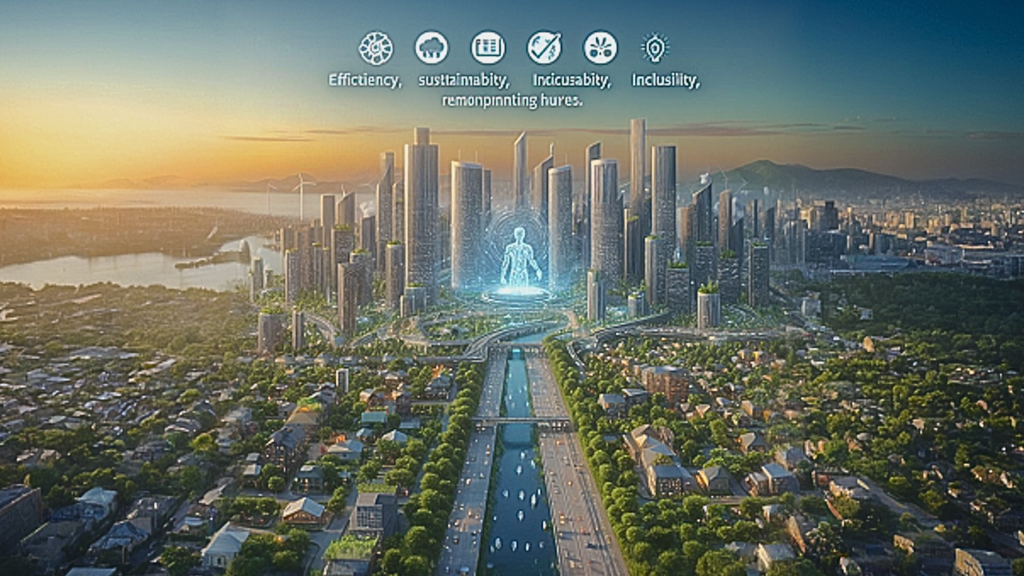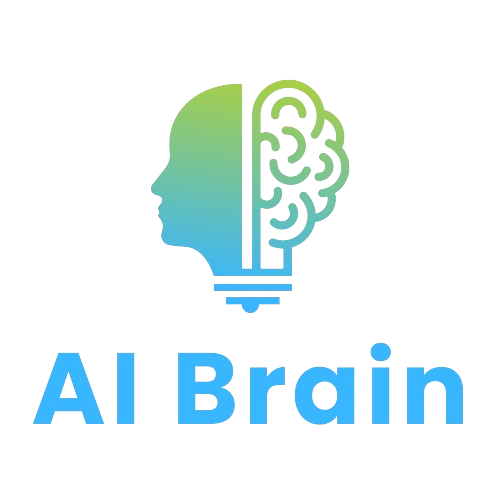In the sprawling landscape of technological innovation, one concept stands out as particularly transformative: artificial intelligence (AI). As urban populations swell and cities become the epicentres of human activity, the need for smarter, more efficient urban environments has never been more pressing. Enter AI, the driving force behind the evolution of smart cities.
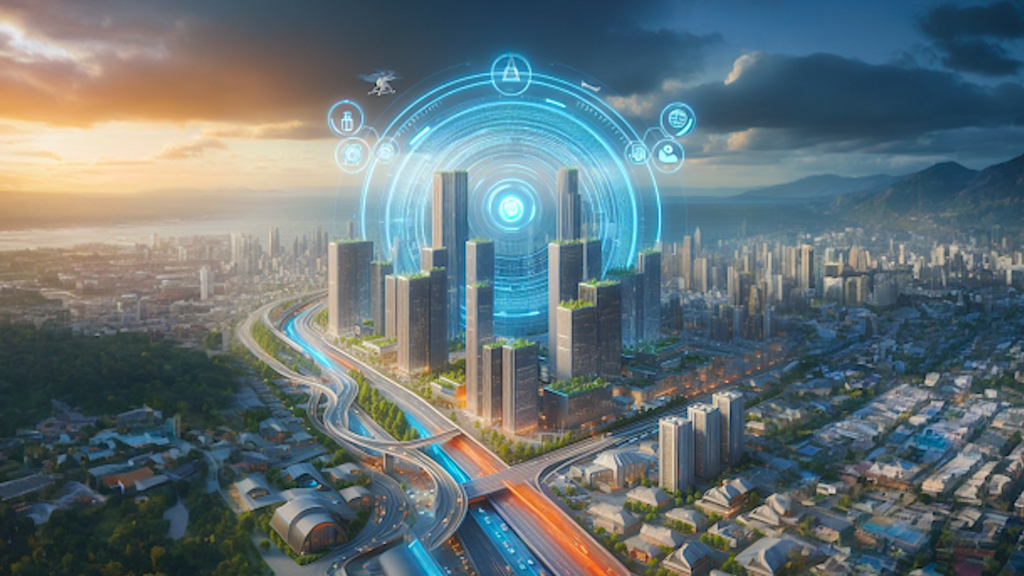
In this blog post, we’ll explore how AI technologies are revolutionizing urban development, with a focus on transportation, energy management, and public safety.
1. Enhancing Transportation Networks
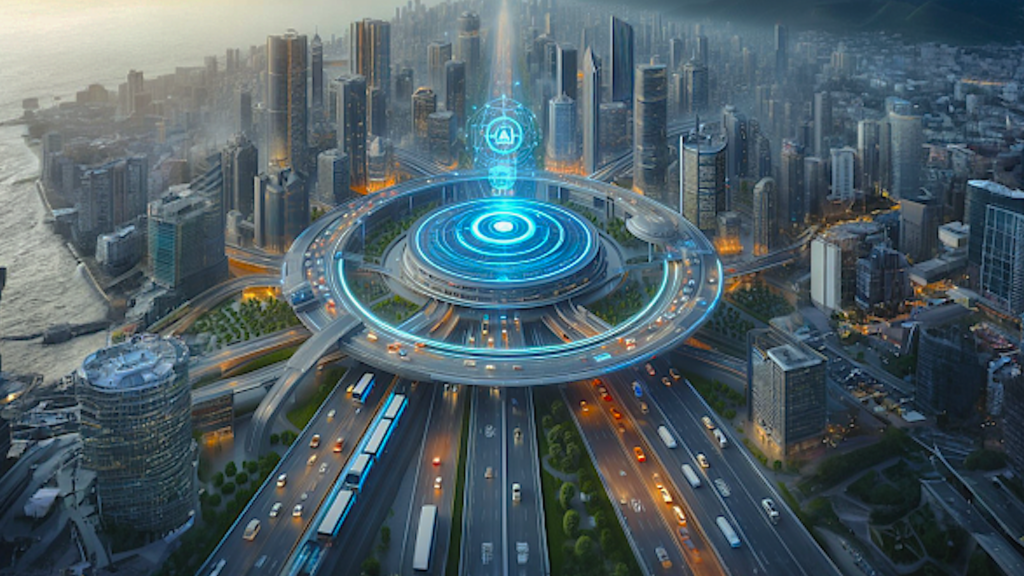
Imagine a city where traffic flows seamlessly, public transportation operates with pinpoint precision, and accidents are a rare occurrence. Thanks to AI, this vision is becoming a reality in many forward-thinking cities around the world. Machine learning algorithms analyze vast amounts of data collected from sensors, cameras, and GPS devices to optimize traffic signals, predict congestion patterns, and even reroute vehicles in real time. This not only reduces travel times and fuel consumption but also improves air quality and enhances the overall quality of life for urban residents.
2. Revolutionizing Energy Management
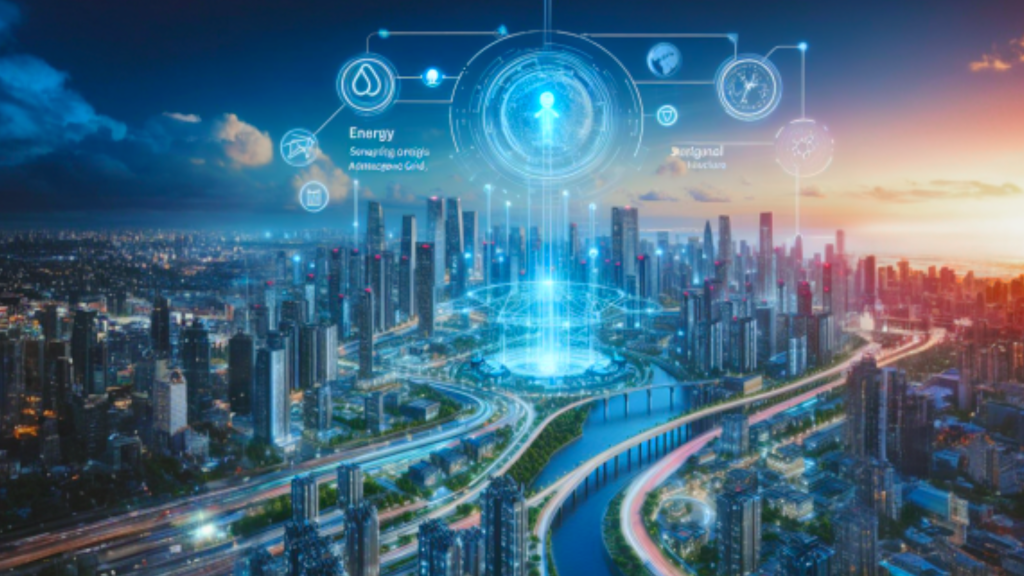
Energy consumption is a major concern for cities striving to reduce their carbon footprint and achieve sustainability goals. AI-powered systems play a crucial role in optimizing energy usage by intelligently managing power grids, buildings, and infrastructure. Smart meters equipped with AI algorithms monitor electricity usage in real time, allowing utilities to identify inefficiencies and proactively address issues. Additionally, AI-driven predictive analytics help anticipate energy demand fluctuations, enabling better resource allocation and grid stability.
3. Ensuring Public Safety
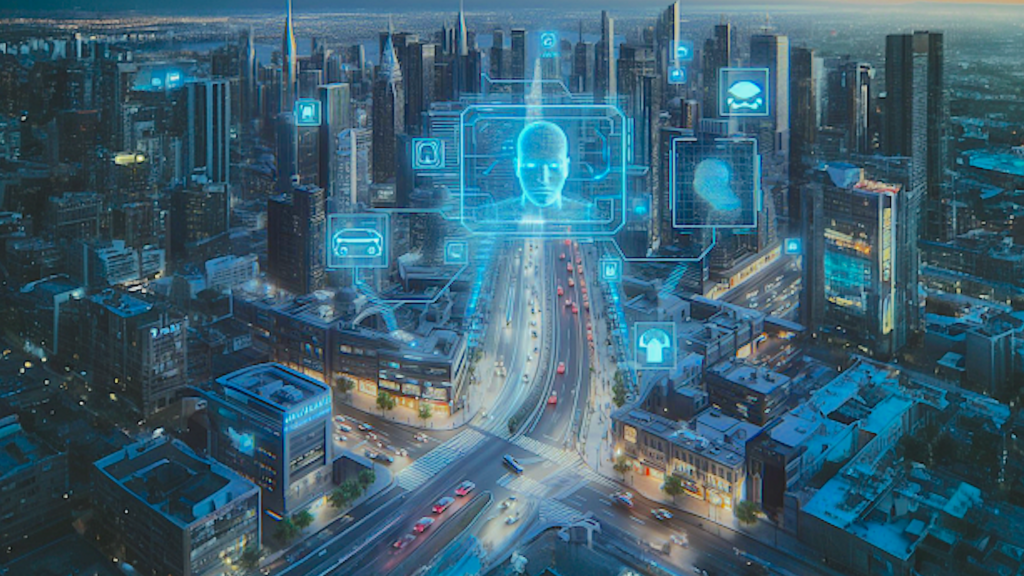
In an era marked by evolving security threats and natural disasters, ensuring public safety is paramount for urban planners and policymakers. AI technologies offer a suite of tools to enhance emergency response, crime prevention, and disaster management efforts. Video surveillance systems equipped with facial recognition and object detection algorithms can swiftly identify suspicious activities and alert law enforcement agencies. Moreover, AI-powered predictive analytics can assess risk factors and allocate resources more effectively during natural disasters, mitigating the impact on urban populations.
4. Encouraging Diversity and Accessibility
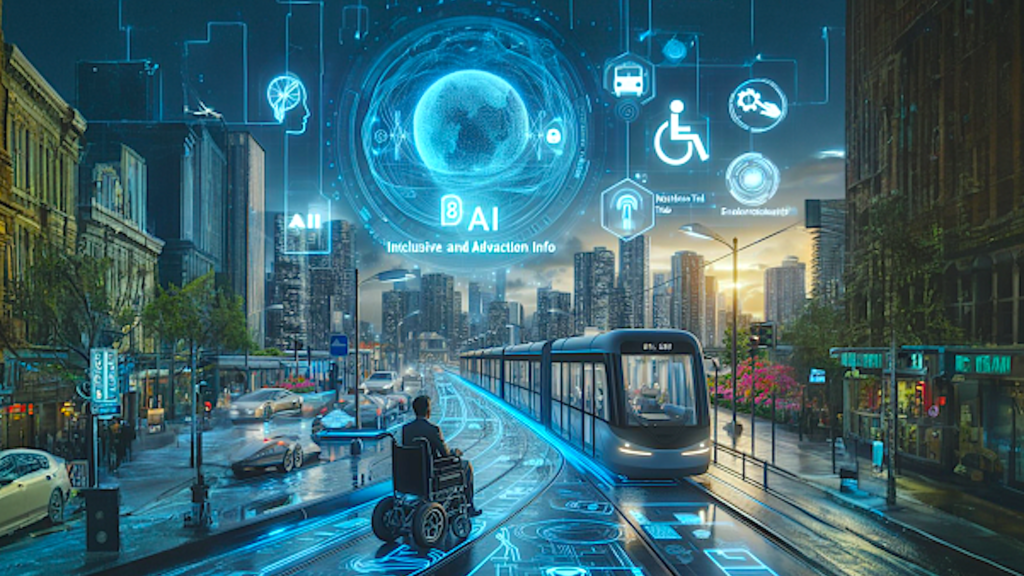
As cities embrace AI-driven innovation, it’s essential to ensure that these advancements benefit all residents, regardless of socioeconomic status or physical ability. Smart city initiatives should prioritize inclusivity and accessibility by designing solutions that cater to diverse needs and preferences. This might involve deploying AI-powered applications that provide real-time transit information for individuals with disabilities or implementing smart infrastructure that enhances the mobility of elderly citizens. By embracing a human-centric approach to urban development, cities can create more equitable and livable environments for everyone.
5. Overcoming Challenges and Ethical Considerations
While the potential benefits of AI in smart cities are undeniable, it’s essential to address the challenges and ethical considerations associated with its implementation. Concerns about data privacy, algorithmic bias, and job displacement must be carefully navigated to ensure that AI technologies serve the best interests of society. Transparency, accountability, and community engagement are critical principles that should guide the development and deployment of AI-powered solutions in urban environments.
